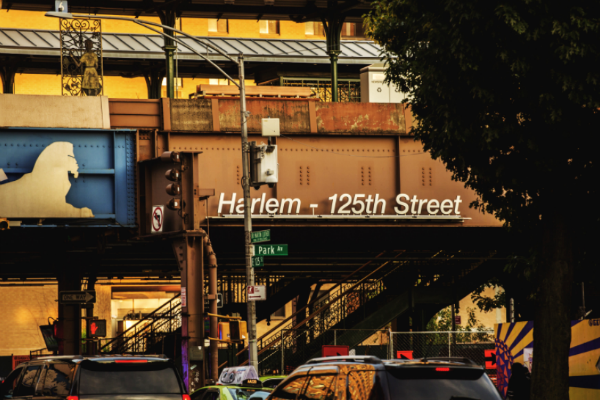 The Health Department is urging New Yorkers, especially those at increased risk, to resume their regular screenings for various types of cancer.
The Health Department is urging New Yorkers, especially those at increased risk, to resume their regular screenings for various types of cancer.
Including lung, colon, breast, and cervical, as a life-saving measure. To encourage screenings the agency launched a media campaign “Getting Back to Cancer Screening” that asks New Yorkers who may have delayed recommended cancer screenings during the COVID-19 pandemic to talk to their healthcare providers about their individual risks and the benefits of cancer screening.
“Regular screenings and health care visits are key to staying healthy and detecting cancer early on,” said New York City Mayor Eric Adams. “While the pandemic affected how often many New Yorkers had regular health check-ups, cancer screenings catch problems earlier and potentially save lives. I urge all New Yorkers to get in touch with their health care provider to make sure you are up to date on cancer screenings.”
“Cancer screenings save lives,” said Health Commissioner Dr. Ashwin Vasan. “Through the challenges of the pandemic and all of its direct and indirect health effects, it’s never been more important than now to get screened. Screening can detect cancer when it’s more treatable, and some types of screening can even prevent cancer. I encourage all adult New Yorkers to talk with their healthcare providers and make sure they are up to date on screenings.”
All adults should check if they are due for colon cancer screening, and women are urged to see if they are due for a breast or cervical cancer screening. People who smoke or have smoked may be eligible for lung cancer screening. Though not included in the campaign as a universal recommendation, men should also ask their providers for information about the option of prostate cancer screening.
Healthcare providers can perform screenings that can be done at their offices, refer their patients to a screening location, or for colon cancer give them a test to take at home so that they can stay on track with life-saving routine cancer screenings.
In NYC, cancer remains the leading cause of premature deaths (before the age of 65) and for the general population is second only to heart disease. While screening is not available for all types of cancer, for colon, breast, cervical, and lung cancer screening can make a significant impact in terms of illness and death. Black New Yorkers may be most affected by decreases in screening as this demographic group has some of the highest rates of cancer deaths for these screenable cancers.
During the worst months of the pandemic, many elective procedures were postponed and people put off routine care for reasons including doctors’ offices being closed, disruptions to the healthcare system and worries about COVID-19 infection. However, the resumption of routine care is essential for health. Missed cancer screenings can lead to later diagnosis of more advanced cancers which have higher death rates and are harder to treat. Early in the pandemic, as many as 3.9 million breasts, 3.8 million colorectal, and 1.6 million prostate cancer screenings were missed due to the COVID-19 pandemic, nationwide.
More recent data suggests that many people have not yet gotten caught up. Colonoscopies to screen for colon cancer decreased by over 33% at one NYC hospital during the first months of reopening after COVID-19 related closures.
According to a November 2021 survey, about 26% of adults in NYC were due for cancer screenings during the pandemic based on their age and sex, but about 40% avoided or delayed the screening.
About 201,000 of those due for a colon cancer screening delayed or avoided it, and of those 133,000 still had not scheduled the screening.
About 376,000 delayed or avoided a mammogram for breast cancer screening, and of those 93,000 still had not scheduled the screening.
“Getting Back to Cancer Screening!” is running citywide via subway squares, radio, bus shelters, social media, LinkNYC, and newspapers. This campaign will be available in English, Spanish and Traditional Chinese.
Regularly scheduled screenings for several common cancers are recommended by the United States Preventive Services Task Force (USPSTF) as well as other expert organizations.
Over the past few years, recommendations for colon cancer and lung cancer screening have been expanded to include younger ages.
“Resuming regular screening for cancer can lead to earlier detection, which could be lifesaving.” said Health Department Chief Medical Officer and Deputy Commissioner Dr. Michelle Morse. “I am hopeful that this urgent advice and encouragement from the Health Department to resume cancer screenings will help reduce inequities in cancer deaths among New Yorkers.”
Recommended Cancer Screenings for New Yorkers
The recommendations for cancer screenings used in the media campaign come from USPSTF and New York City’s own colon cancer guidance and they are intended for people at average risk of cancer. New Yorkers should talk to their providers about their health and family histories to see exactly when to screen and how often.
Colon Cancer Screening: People aged 45 to 75 should get screened for colon cancer with a colonoscopy every 10 years, or a stool-based test every year or three years; older adults may also be eligible for screening.
Colonoscopy can both detect cancer and prevent it if a precancerous polyp is found and removed.
Breast Cancer Screening: Women may choose to start screening for breast cancer at age 40. Women ages 50 to 74 should get a mammogram every two years.
Cervical Cancer Screening: People ages 21 to 65 should get screened for cervical cancer. Screening options and intervals vary by age; they include Pap tests and/or HPV tests every three to five years depending on test type and age.
Lung Cancer Screening: People ages 50 to 80 who have a history of smoking may qualify for a yearly lung cancer screening called low-dose computed tomography. New Yorkers should share their smoking histories with their health care providers to find out if they are eligible. Lung cancer has a high mortality rate, but survival rates are much better when it is found early.
USPSTF also recommends that healthcare providers discuss prostate cancer screening with men aged 55 to 69. While this is not a universal recommendation to screen, men may choose to have this screening.
Medicaid, Medicare, and most other health insurance plans cover cancer screening, although exact coverage may vary by plan. Low or no-cost cancer screenings are available through NYC Health + Hospitals.
Patients can schedule an appointment by calling 1-844-NYC-4NYC.
Patients without insurance can call 311 or text “CoveredNYC” to 877-877 to learn if they are eligible for low- or no-cost coverage.
For people without insurance or who have insurance that does not fully cover screening, the New York State Cancer Services Program (CSP) provides breast, cervical and colorectal cancer screenings and diagnostic services at no cost.
Visit www.health.ny.gov/diseases/cancer/services or call 1-866-442-CANCER (2262) for details.
Become a Harlem Insider!
By submitting this form, you are consenting to receive marketing emails from: . You can revoke your consent to receive emails at any time by using the SafeUnsubscribe® link, found at the bottom of every email. Emails are serviced by Constant Contact








